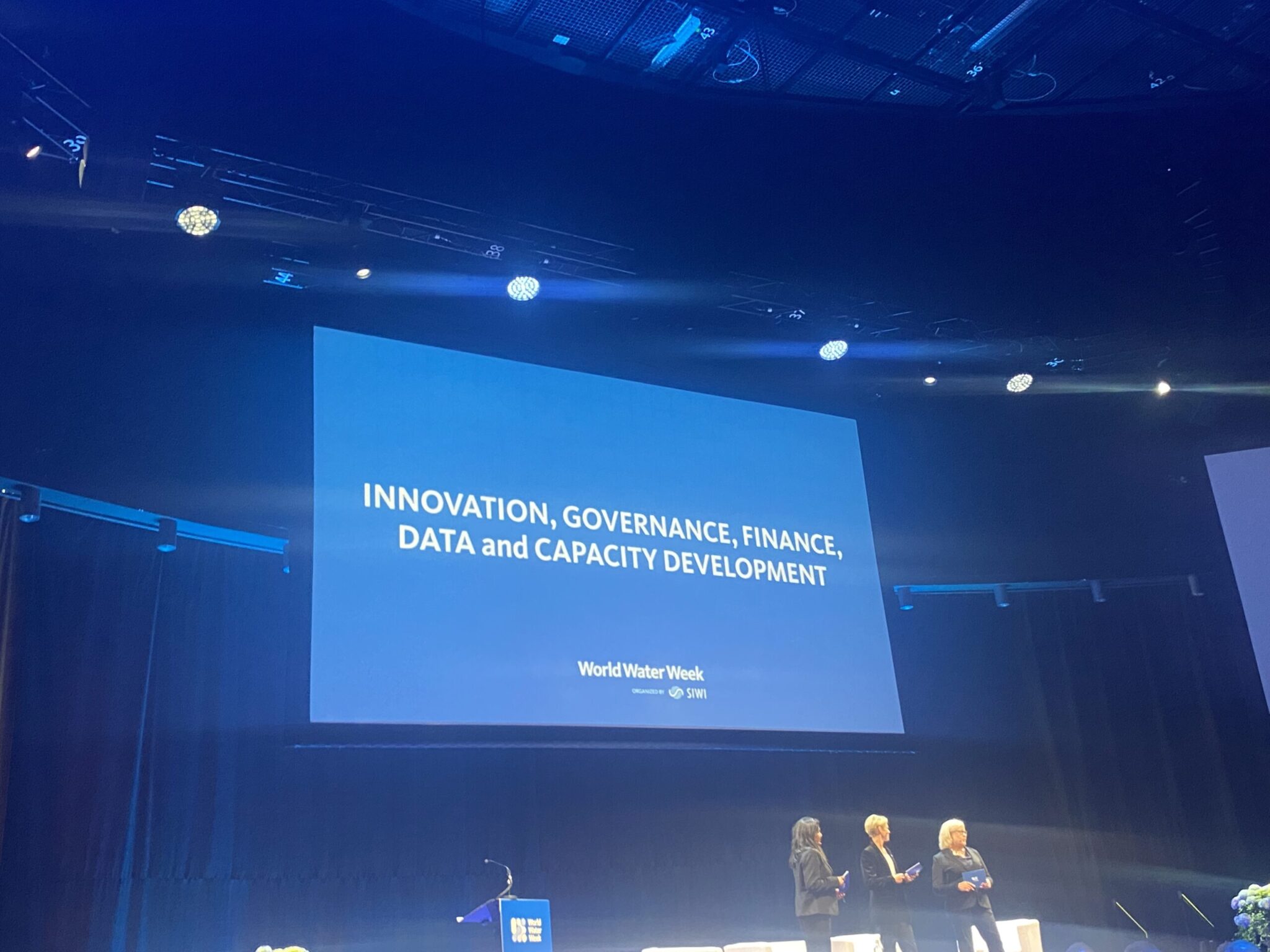Delving into the core of innovation and its vital role, the official World Water Week Opening Ceremony, hosted today, illuminated two pivotal dimensions: comprehending innovation itself and pinpointing the domains necessitating innovation to manifest our desired transformative outcomes.
Karin Gardes, SIWI’s Acting Executive Director, and Susanne Halling Duffy, Acting Director of World Water Week and Prizes, inaugurated the session, rallying the participants around Gardes’ assertion that change hinges on trust, with hopes that World Water Week can instill this essential sentiment.
In response to the global water crisis, Halling Duffy underscored the imperative for World Water Week to adopt a solution-focused approach, underscoring the significance of inclusivity in decision-making processes to achieve shared aspirations.
This sentiment was echoed by Milika Sobey, marine biologist and indigenous representative, who delivered the keynote address. Sobey urged attendees to foster innovation by integrating indigenous wisdom into water governance, emphasizing that indigenous perspectives consider the holistic picture, a perspective that has long been undervalued but deserves a prominent place in discussions.
Furthermore, Sobey’s challenge resonated deeply: “Seeds of change necessitate agents of change.” She entreated participants to step into roles of transformational agents, driving progress.
The President of the United Nations General Assembly, Csaba Kőrösi, spotlighted the gaps in the United Nations’ approach to water strategy and intergovernmental cooperation, advocating for a dedicated platform in light of the pressing water crisis and emphasizing the necessity of “game changers.”
Drawing from the United Nations 2023 Water Conference, Kőrösi highlighted pivotal steps leading to significant commitments, some of which he dubbed “game changers.” He pressed the urgency of reshaping the game to surmount looming challenges.
The essence of game-changing strategies was at the crux of the discussions on stage. Johan Forssell, Swedish Minister for International Development Cooperation and Foreign Trade, underscored the imperative of private sector involvement in tandem with supportive political environments.
Paola Albrito, Director at the United Nations Office for Disaster Risk Reduction, emphasized collaborative endeavours between public and private sectors, with Sergio Campos Gonzales, Chief of the Water and Sanitation Division at the Inter-American Development Bank, reiterating the importance of investing in resilience to address the transboundary nature of water challenges.
In the quest for solutions, the discourse centered on data as well. Sareen Malik, Executive Secretary of the African Civil Society Network on Water and Sanitation, delivered a resounding call to amalgamate innovation, funding, data, and capacity development to alleviate the burden of water collection on women in the Global South.
Ultimately, Karin Gardes, SIWI’s Acting Executive Director, encapsulated the profound dialogues by asserting that discussions on innovation must revolve around core values. She probed questions of inclusivity, the role of agents of change, and harmonious collaboration with nature. She concluded by sowing the seeds of innovation, ushering participants to initiate transformative endeavours.
Indigenous perspectives framed the opening day of World Water Week 2023, revamping the perception of water’s value. These perspectives underscored respect, reciprocity, and relationship as quintessential elements, fostering human prosperity within the ecosystem.

